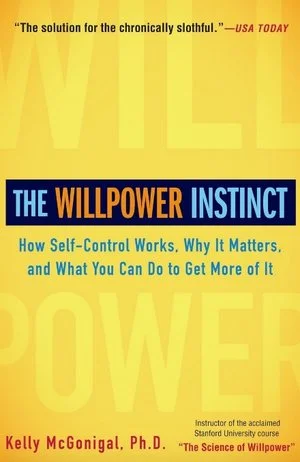7 Steps for Making your New Year’s Resolutions Stick
I've set myself one goal for 2021. I usually make a list of several resolutions at the end of every year, but I just checked up on the ones I made the last few years, and that was discouraging reading, really. I only managed to manifest very few of my good intentions.
The three biggest reasons for my failures are:
My goals are too big to attain in one year.
I have too many goals on my list.
I’m not aware enough of my self-sabotaging patterns.
This year, I’ve made a new strategy.
Because the process of seeing an inspired goal all the way through to full fruition, in reality, requires great mental fortitude. More often than not, the good intentions evaporate in pace with the demands and interruptions of everyday life. Not to mention the mechanisms of the unconscious mind that is not too keen on changes.
Want to keep your resolutions in 2021? Here're my seven best tips on how to do:
Achieving goals starts with:
Focus
Being specific with what you want
Keeping Your Goal Fresh in Mind
Planning
Anticipation
Checking yourself for your usual self-sabotage patterns
Practicing gratitude
1. Focus
“If you chase two rabbits, you will not catch either one”
You can achieve almost anything in life, as long as you focus on attaining ONE thing at a time. This strategy is time-tested, and one many successful people stick to.
I'm not saying that you should only focus on one thing in your life, period, just that you should be smart about what you pursue.
As the old saying above goes, you get nothing if you focus on numerous things. You need to adjust your foresight on one goal at a time.
If you have several goals you want to achieve, make a list in order of priority and focus on the first one first, and so on.
"Zero in on your target." As the Dalai Lama once said.
Prioritize realistically. Check out what goals that can go well with everyday life. For example (bluntly) – if you've just given birth to twins, maybe 2021 is not the year you should set yourself up to do an Ironman; instead, you can set the goal of squeezing in 15 minutes of exercise a week. You get what I mean
2. Be Specific
When you have decided on your resolutions and their order, then make sure that the goals are as specific as possible and write them down as visually as possible - perhaps with pictures.
The brain doesn't work with unspecific intentions such as: "I want to lose weight" or "I want to write a book."
Suppose your deepest desire is to lose a stone. In that case, you could set a goal that you want to be able to fit into a particular piece of clothing and then visualize yourself in that dress or those pants in size 8 - or whatever your desire is, keep it as tangible and visual as possible.
If you want more family time, you can put a specific number of hours per week as your goal and something about how you want to spend these hours.
If it is more exercise you want to incorporate, then find out what "more" is. Is it running 5k twice a week? Is it a six-pack? Be specific, so the brain knows what to work toward.
If you want to stop smoking, then visualize/imagine yourself as a non-smoker as precisely as possible. Your smoother skin, see yourself in all situations (content and stressful) without a cig. See yourself as a happy non-smoker, etc. - And don't forget your goal should be something you're genuinely passionate about. Motivation is important.
Tip. The key to creating a cycle of success is to set a grand vision and work your way there with a few achievable goals. That'll increase your likelihood of experiencing a positive outcome.
Split your goals into subsidiary goals. For example, If your goal is to lose 10 kilos in 2021, you can divide your goals into 20 subsidiary goals of losing half a kilo a week - and don't forget to celebrate each win. The cultivation of small wins will propel you to bigger success.
3. Keep Your Goal Fresh in Mind
Remind yourself of your goal often. If your goal is to exercise more you can watch sports documentaries or Youtube videos, read books and magazines. Check out Facebook groups on the subject, or follow inspiring exercise types on Instagram etc.
Maybe hang up an image of the target.
By influencing your mind about your aims all the time, you will automatically feel motivated and switch your brain to stick to your long-term goals and ignore the quick fixes that often ruin them.
Keeping your eyes on your goals at all times increases the chance of them manifesting unnoticeably and magically.
4. Plan
“Life is what happens while you’re busy making other plans.”
Everyday bustle and distractions are the main goal killer. The flu, which slows down the good exercise routine, the minor problems that have to be solved here and now, trips that disrupt the rhythm, bills to be paid, extra responsibilities that pop up out of the blue, and one day you have lots of energy and the next nothing. That's life. Accept it and prepare for it. Spend an evening to think through different typical pitfall scenarios. What usually goes wrong and how to address them best.
Whatever your resolutions are about, you need to prep your home and workplace for the new you.
For example, you want to lose weight or workout more:
Remove all sweets, cakes, soft drinks, and stimulants from your home and office drawers and replaced them with the healthy stuff that your chosen diet suggests.
Store fruit where you used to store your cookies and so on.
Keep your running shoes by the door; your yoga mat unfolded, dumbbells, or what your new lifestyle requires visible.
Plus:.
How much time/energy do you need to set aside for the goal and work towards it?
Make a list of the things you need to buy and then buy them now.
Roadblock Prevention Planning:
Because you won't just wake up and change your life, you not only need a plan for what to do, but also for what roadblocks you'll come across along the way.
If you want to form or break a habit, break it down into three parts: a cue, a routine, and a reward.
You don't want to create a new bad habit in your brain, so be very strategic and mindful when planning.
For example:
Bad Habit: I check Instagram too often.
Cue: I need a distraction.
Routine: I check Instagram.
Reward: I feel entertained.
Way to change the behavior: Do nothing. Accept the urge and continue what you were doing before the impulse hit. Or look out of your window for five minutes. Or allow yourself a little daydream time. Or move physically away from your device for five min.
If you have a really bad health habit?
Bad Habit: I smoke.
Cue: I feel an urge.
Routine: I smoke a cigarette.
Reward: I'm stimulated.
Way to change the behavior: Allow the urge to be there. Notice that the sensation is more mental than physical. Distract yourself for five minutes - do the laundry or write an email. The desire will come and go for a while and suddenly forever evaporates.
If your Habit affects your whole day?
Bad Habit: I don't get enough sleep at night.
Cue: I feel I need to wind down in the evening.
Routine: I stay up too late, watching TV.
Reward: I'm relaxed.
Way to change the behavior: Instead of staying up late to watch TV, carve out a particular time each day to spend by yourself.
5. Anticipate - Prepare for the Classic Pitfalls
YOUR ENVIRONMENT
The outside world rarely understands one's wish for change. Humans are social animals and we often react negatively to change - our primeval instincts tell us that new behavior might threaten something. So when you begin to show willpower and drive, you will also, at some point, encounter resistance from your social circles that prefer the "old you". You are very likely to have to relate to comments like: "Don't go fanatic". Or: "One small piece of cake won't hurt." Or: "You have to enjoy life too." When this happens, know that their reactions are not about you, but all about them – you might just be a reflection of some kind of guilt.
When people say things like that to me, I find it helpful to reply: "I really want to lose weight, and your support in the process would help me a lot. I know you mean well, but offering me a cake is not accommodating to me right now."
Other tips:
Bypass the colleague for a while who has homemade cake or sweets lying on the desk.
Stay away from gatherings in the first few months where it'll be hard for you to keep on the path of virtue.
When your partner are on the couch with a bag of sweets in one hand and an ice-cream in the other, then remind yourself of your long-term goal - because you CAN train your mind to want what is good for you.
Maybe look for new social circles. If you remain in the same social circles when going through a change, our herd mentality is also what can make progress harder. You can compare it somehow with rehab programs. Those who manage to get out of addictions are those who leave the environment where deleterious behaviors run.
Join groups with same interests and goals as you like running clubs, Facebook-groups etc.
Anyway, don't be surprised if you suddenly find that new people with the same passions or interests as you start showing up in your life.
6. Self Sabotage Patterns
A few weeks ago, I was rushing down my apartment building's staircase. Hands full of freshly made skincare products, cool brochures, and generous goodie-bags.
I was on my way to an important sales pitch that I'd been busy preparing for, for weeks. Everything was perfect right up until I was halfway down the stairs, where I suddenly felt a soreness in my throat and weakness in my bones and muscles.
A disease is my perfect excuse to get out of things and keep me from "the risk" of success.
This time, however, instead of turning around and canceling the meeting, I recognized my pattern. Because the sensation occurred so sudden, I knew that this was just my typical self-sabotage kicking in, so I said to myself: "No!" I even added: "No, fucking way!" and seconds after, the sensation in my throat disappeared, and my energy came back.
“Self-sabotage is when we say we want something and then go about making sure it doesn’t happen.”
We all get in our own way sometimes. It happens when our brains subconsciously hold on to fear, loss, failure, and rejection.
Unconsciously our behaviors or actions create problems in our lives and interfere with our intentions and goals.
Self-sabotage can show up in our lives in different ways, and it creates a great deal of unnecessary distress. For some, it can look like procrastination or avoidance. For others, it might manifest as misusing drugs or alcohol, relieving stress with unhealthy habits (like overeating or mismanaging money), or engaging in conflict with others.
No matter how it manifests, self-sabotaging behavior results from a misguided attempt to rescue ourselves from our negative feelings. It may be that you daren't stand on to the new stage of development, have a fear of failure, success, or of disappointing yourself.
Where Does Self-Sabotage Come From
Self-sabotage can have many causes. It may be that previous experience/influence taught us that we couldn't succeed. It may be an unconscious feeling of not deserving success, a lack of belief in one's abilities, feelings of guilt of doing well, a lack of self-esteem, or just that the sensible and the rebellious part of the brain doesn't agree entirely on that plan.
When the rational, practical part of your brain was busy, planning the entire process, and is ready to press start, it didn't match up to the expectations with "the rebellious, inner child" who might already feel that everyday life is pretty hard and dull as it is. When the two parts of the brain don't cooperate, the rebel will often succeed in obstructing all reasonable action plans.
How to Stop Self-Sabotaging Your Success
The first step in defeating self-sabotage is to reflect on how it shows up in your own life.
Create a stream-of-consciousness list of the ways—small or large—that you are getting in your way.
Know that it can be a very sneaky system.
I just realized that one of my other self-sabotage patterns is my need to rescue, save, or help others, which is a prevalent trait in adults growing up with alcoholic parents.
For example, if I've set myself a goal of writing a book. I know what to write about, I made a writing schedule, and I then begin the process. But if somebody calls me and wants my help (and they will - because I'm a rescuer, so I attract people in need), I'll immediately come to the salvation rather than stick to my plan. Or my rescue tendency can show up as an urge to comment on something on Twitter or Facebook. My subconscious mind will always come up with “important” things that can get me off MY project, and “protect” me from “the dangers” of success.
But now that I'm aware of that, I can resist it and make a strategy for it.
Four Typical Self-Sabotage Patterns
1. Fear of success or failure.
2. Postponing.
3. Quitting When the Going Gets Tough.
4. Accidents and injuries. Yes, accidents and injuries often happen in inattentive situations or during the hustle and bustle. Setbacks like that can also be an unconscious self-sabotage pattern. Check whether you previously have had to give up a goal because of injury, illness, or accidents.
7. Gratitude
Cultivating gratitude starts a virtuous circle and can thus have a powerful influence on one's life.
The brain only has so much power to focus its attention on. On top of that our brain loves to fall for the confirmation bias that is, it looks for things that prove what it already believes to be true, and the dopamine reinforces that as well. So once you start to be grateful for things, events, situations, people etc. in your life, your brain starts looking for more things to be grateful for. That’s how the virtuous cycle gets created.
According to a 2011 study, people feel motivated and energized when they experience gratitude, and that gratitude encourages them to make progress towards their goals. In this study, students were instructed to list the goals they wanted to accomplish within the next two months. Then they were randomly assigned to either:
To count their blessings.
To list their hassles.
To complete a neutral writing activity each week for 10 weeks.
Those in group 1 reported making relatively more progress towards their goals.
In addition, a 2009 study suggests that gratitude leads people to believe they deserve positive outcomes for themselves and are capable of achieving them.
Oh, and don't forget to thank yourself.
The idea of gratitude sitting on the couch not doing anything but feeling good about existence doesn't build your confidence in your ability to deal with adversity.
Dopamine is a brain chemical that is triggered when you feel that a reward is at hand. The closer you get to your goal, the more dopamine you get, but once you've accomplished your goal, the dopamine is over, and so is the excitement of approaching a reward, unless you take another step to meet your needs – that's what dopamine is designed for.
So thank yourself, too, for all the little and big things you accomplish and do, because when you feel positive about something you did, it helps build the circuit that helps you feel more capable of dealing with the adversity that might come.
Happy New Year
For further knowledge about dopamine and the brain's reward system, I can recommend this post too: Hack brain and use cravings to your advantage.
Books I can recommend:
Dislaimer:
All information in this blog is strictly for informational purposes only and should not be taken as medical advice. The statements made in this blog have not been evaluated by The Danish Health Authority. The products linked to in this book and any information published in this blog are not intended to diagnose, treat, cure, or prevent any disease. The information provided by this blog is not a substitute for a faceto-face consultation with your physician, and should not be construed as medical advice. The entire contents of this blog are based upon the opinions of Hanne Robinson. By reading and using this blog, you agree to only use this publication for personal informational use and not as a substitute for medical or other professional advice.











